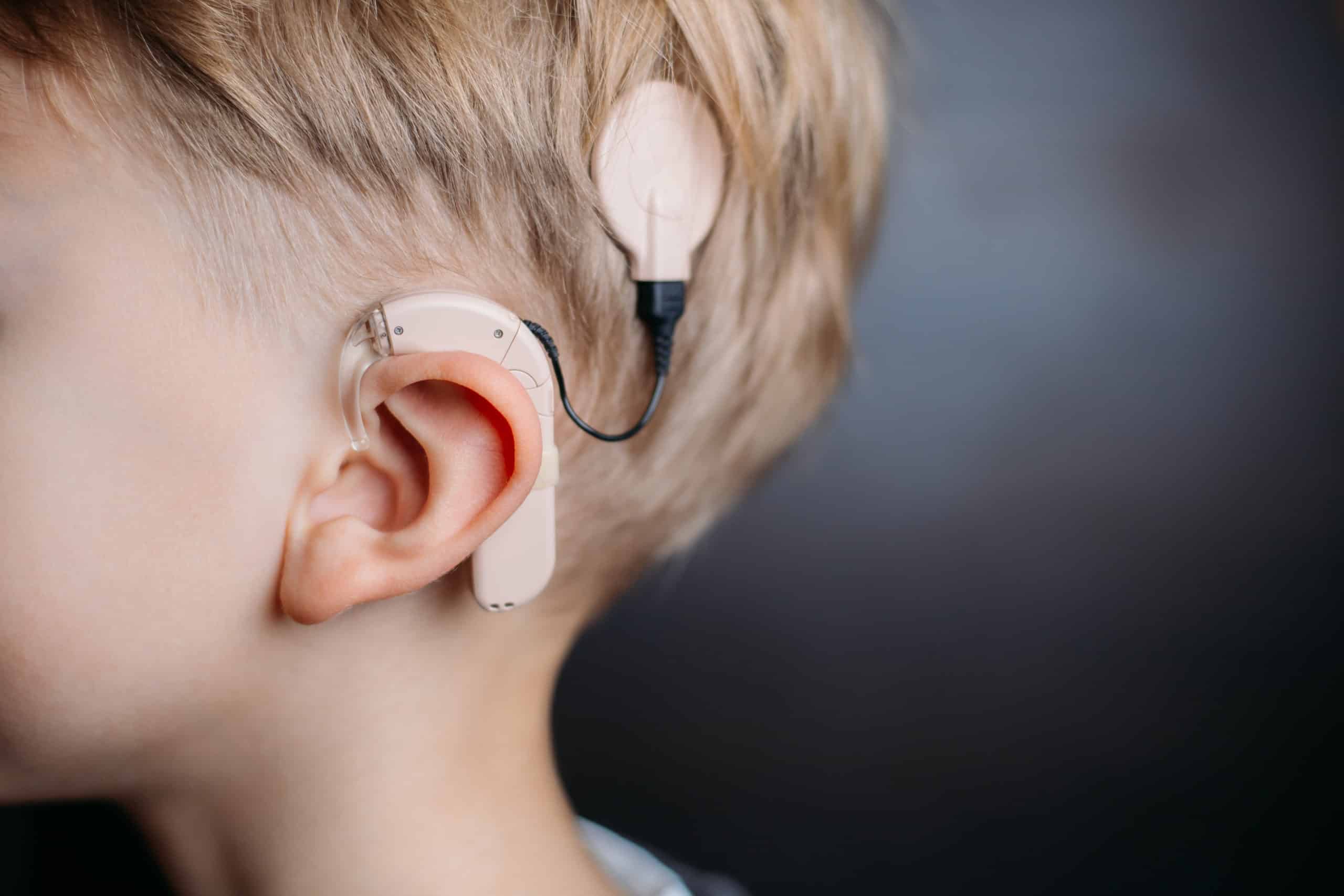Cochlear Implants
What is a cochlear implant and how does it work?
A cochlear implant is a small electronic device that is surgically implanted in the inner ear to help provide a sense of sound to people who are deaf or severely hard of hearing. Unlike hearing aids, which amplify sound, cochlear implants bypass the damaged parts of the inner ear (cochlea) and directly stimulate the auditory nerve.
Here’s how a cochlear implant works:
- Microphone and speech processor: Sounds from the environment are picked up by a microphone worn behind the ear. The speech processor, a small device worn on the body or behind the ear, processes the sounds and converts them into digital signals.
- Transmitter and receiver-stimulator: The processed digital signals are sent to a transmitter coil worn on the outside of the head. The transmitter coil sends the signals to the internal receiver-stimulator, which is surgically implanted under the skin behind the ear.
- Electrode array: The receiver-stimulator converts the signals into electrical impulses and sends them to a group of electrodes in the cochlea. These electrodes stimulate the auditory nerve fibers, which then send signals to the brain, where they are interpreted as sound.
- Brain interpretation: The brain interprets these signals as sound, allowing the person to perceive sound and speech.
Cochlear implants are designed to provide a sense of sound to individuals who do not benefit from hearing aids. They are most commonly used in individuals with severe to profound sensorineural hearing loss, where the hair cells in the cochlea are damaged or non-functional. Cochlear implants can significantly improve the ability to hear and understand speech in many people with hearing loss.
What are the risks associated with cochlear implants?
While cochlear implants are generally considered safe and effective, like any surgical procedure, they do carry some risks. Some of the potential risks and complications associated with cochlear implants include:
- Surgical risks: As with any surgery, there are risks associated with the implantation procedure, such as infection, bleeding, or damage to surrounding structures in the ear.
- Device malfunction: There is a small risk that the cochlear implant device may malfunction, either due to technical issues with the device itself or problems with the internal or external components.
- Changes in taste: Some people may experience changes in taste following cochlear implant surgery, which is usually temporary.
- Facial nerve stimulation: In some cases, the electrodes of the cochlear implant may stimulate the facial nerve, leading to facial twitching or other facial muscle contractions.
- Dizziness or vertigo: Some people may experience dizziness or vertigo after cochlear implant surgery, which is usually temporary.
- Meningitis: While rare, there is a slightly increased risk of developing meningitis after cochlear implant surgery. This risk can be reduced by ensuring that the individual is up-to-date with their vaccinations.
- Incomplete or insufficient benefit: While cochlear implants can provide significant benefit for many people with hearing loss, some individuals may not experience the expected level of improvement in hearing and speech understanding.
It’s important to discuss the risks and benefits of cochlear implant surgery with a healthcare provider to determine if it is the right option for you or your child. Overall, cochlear implants are considered safe and effective for the majority of individuals who receive them, and they can significantly improve quality of life for people with severe to profound hearing loss.
How much do cochlear implants cost and does the insurance pay for it?
The cost of cochlear implants can vary depending on several factors, including the specific device used, the surgical procedure, and any additional services or accessories required. In the United States, the total cost of cochlear implant surgery and device can range from $30,000 to $50,000 per ear.
Many insurance plans, including Medicare and Medicaid, cover some or all of the cost of cochlear implant surgery and device for individuals who meet certain criteria. Coverage and reimbursement policies vary by insurance plan, so it’s important to check with your insurance provider to understand your specific coverage and any out-of-pocket costs you may incur.
In addition to insurance coverage, there are also financial assistance programs available to help individuals who may not have insurance coverage or who may have difficulty affording the cost of cochlear implants. These programs may provide financial assistance or grants to help cover the cost of surgery and device. It’s recommended to contact the cochlear implant manufacturer or local support organizations for more information on financial assistance options.




